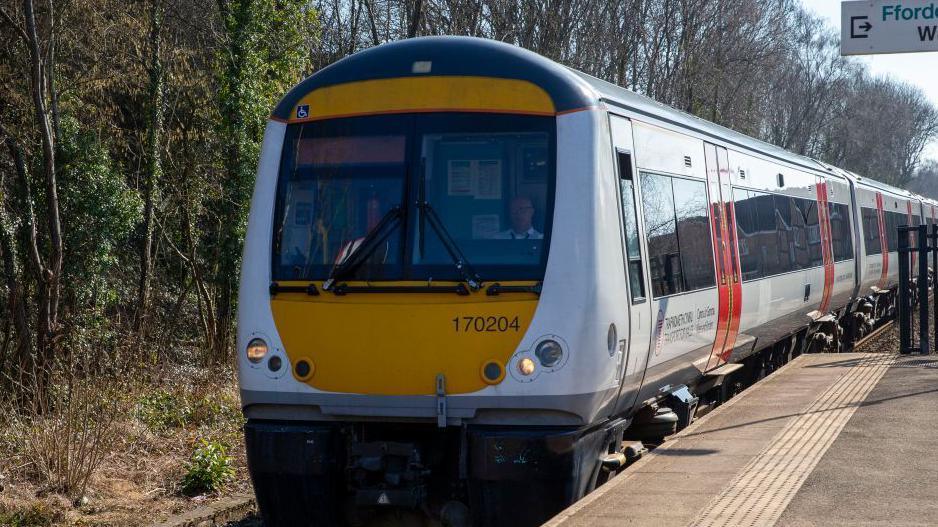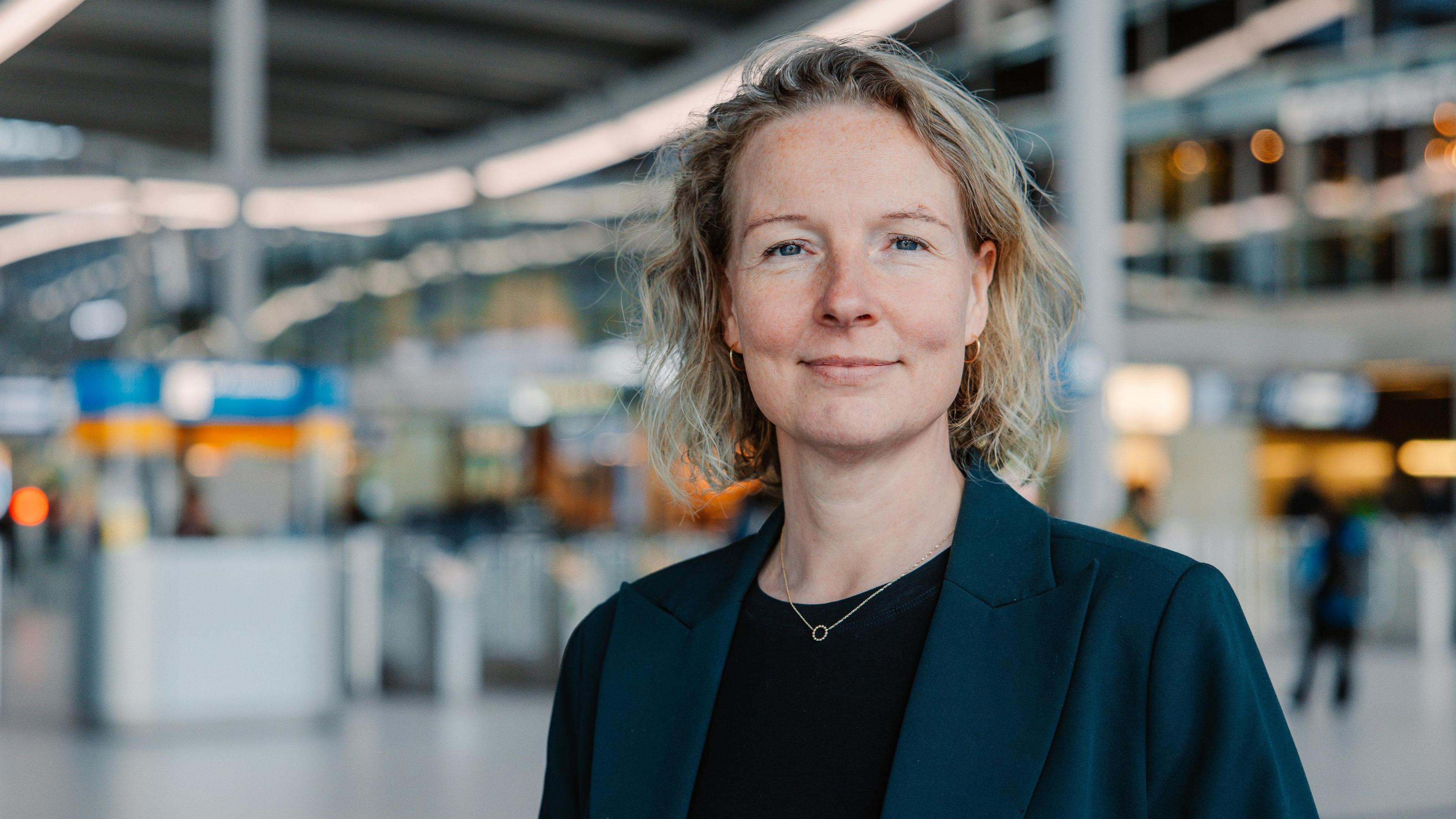Bring in Dutch-style rail fare system, says expert

Professor Stuart Cole says fares should be based on the distance travelled
- Published
Ticket prices for trains in Wales "make no sense", according to a leading transport expert.
Professor Stuart Cole says fares should be based on the distance travelled, as in the Netherlands.
The Welsh Government agrees the "system is broken".
It says reform of the railways, being led by the UK Government, will help in the long run.
Welsh railways underfunded, UK government admits
- Published15 January
New stations in £445m 10-year Wales rail plan
- Published11 June
Historic Wales and England crossing shut to traffic
- Published3 October
The £1 bus fare for young people between 16 and 21 years old which came into being a month ago, is the latest campaign by ministers trying to get more of us on to public transport.
But while paying a pound a journey is clear to everyone, the ticketing system for our railways is anything but clear.
For example, travelling from Carmarthen to Cardiff, there is a substantial difference in the kind of prices you have to pay, even outside peak times.
If you booked last Wednesday to travel next Wednesday, 8 October, you could use the 09:21 train which will cost you £15.50.
But half an hour later at 09:57, you will only have to pay £7.70.
Then at 10:31 there are two choices.
One costs £15 and the other only £7.70, though the cheaper train takes 21 minutes longer.
The transport expert, Emeritus Professor Stuart Cole, says big differences in prices have emerged over the years because of dynamic pricing by rail companies.
But he says anomalies like these need to be sorted out.
"In many cases it makes no sense from what I can see, because there's no relationship between peak and off-peak periods in those fares… that doesn't make sense and I can't see the argument for it," he added.
Prof Cole points to the Netherlands as an example of a country where rail ticketing is much clearer.
Generally speaking, it is the same fare all day, every day.
Bertien van Baak from Dutch Railways explains that there are off peak options, but apart from that, the amount you pay depends on the distance you need to travel.
"We have a standard fare so every traveller knows the standard fare, and then there are ways to have a discount on that fare, depending on if you are part of a certain group, so let's say children or elderly can have specific fares or if you travel as a group," she said.

Bertien van Baak says the amount you pay in the Netherlands depends on the distance you need to travel
Prof Cole says Wales could have a system like the Dutch one, but that ministers down the years have not been prepared for the investment that would need.
"There isn't any reason for not doing it, unless it's financial. It's a risk, and governments don't like to take on risky projects," he said.
"Certainly civil servants advising will say 'well minister, this is very courageous'. And that I think is the main reason, the financial implications ministers would worry about, because we are short of money."
The Transport Secretary, Ken Skates MS, says he agrees the system needs reform but that change is coming.
"So, we've got, across Britain, more than 20 rail operators, and the system, I'm afraid, is pretty much broken," he said.
"And that's why the UK government is bringing forward radical reform of rail services under Great British Railways, and they're going to be looking at the fare system."
But Mr Skates said simplifying rail fares might not provide value for money.
"There is a risk that you create a large cohort of losers," he said.
"You generate substantial increased fares from those who have to pay more.
"So a standardised fare regime doesn't necessarily make rail travel cheaper. For a lot of people, it will make it more expensive, and we're in the business of making it as affordable for as many people as possible."
The Welsh government also pointed to the improvements that have already been made, and says the UK government's plans to reform how the railways work may well lead to a clearer fare system in due course.